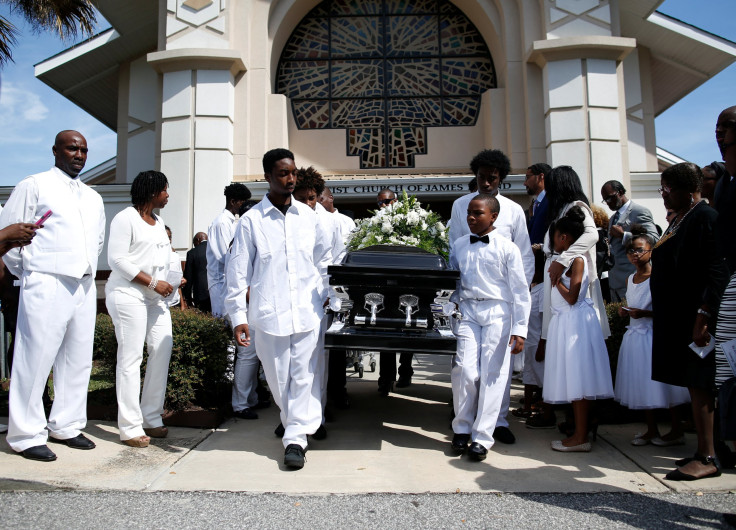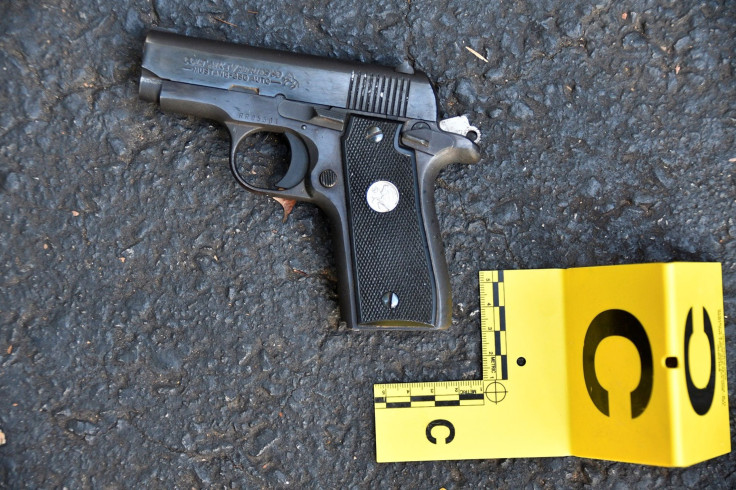Police Killing The Mentally Ill 2016: Autopsy Reveals Keith Lamont Scott Was Killed By Shot To Back

Gunshot wounds to the back and abdomen killed Keith Lamont Scott, the 43-year-old North Carolina man shot by police while suffering from a traumatic brain injury in September, according to an autopsy released Monday by the Mecklenburg County Medical Examiner’s Office.
The shooting in Charlotte on Sept. 20 was captured on video by his wife, Rakeyia Scott, and unleashed two nights of street violence and weeks of protests in the city after his family claimed he was unarmed, the Charlotte Observer reported. There were conflicting accounts over whether Keith Lamont Scott had a gun and if officers should have used lethal force after being told by Rakeyia Scott about her husband’s traumatic brain injury.
Police said they approached Keith Walter Scott, who was waiting in his parked car for his son to arrive home from school, when they saw him rolling a marijuana “blunt” inside. They say they were forced to act once they saw Keith Lamont Scott hold up a handgun. Officer Brentley Vinson, who is black, claimed he fired four shots at Keith Lamont Scott after he made a threatening gesture toward him with the gun and did not comply with officers’ commands to drop it.
In Rakeyia Scott’s video, officers can be heard repeatedly yelling at her husband to "drop the gun” and Rakeyia Scott’s responding, “He doesn't have a gun. He has a TBI (traumatic brain injury.) He's not going to do anything to you guys. He just took his medicine."
In a press conference on Sept. 24, Charlotte Police Chief Kerr Putney said while body and dash-cam released by The Charlotte-Mecklenburg Police Department, showed no “absolute, definitive visual evidence" that Keith Lamont Scott had a gun in his hand, he maintained that evidence found at the scene proved Vinson’s account. The department released photos of a pistol and the ankle holster it found at the scene that contained traces of Keith Lamont Scott’s DNA, according to local reports.
Rakeyia Scott told CBS' “This Morning” her husband had been under the influence of up to 11 different medications treating his multiple sicknesses, including his traumatic brain injury, when he was approached by police.
“He takes them, and you have to give it time to kick in,” she said. “If you start a conversation with him, he’s not going to remember the conversation. You have to wait for the medicine to kick in.”

Police officers were more likely to kill someone if they had a mental health condition, a 2015 Washington Post investigation concluded. “The analysis found that about 9 in 10 of the mentally troubled people were armed, usually with guns but also with knives or other sharp objects. But the analysis also found that most of them died at the hands of police officers who had not been trained to deal with the mentally ill,” the Washington Post reported.
© Copyright IBTimes 2025. All rights reserved.






















